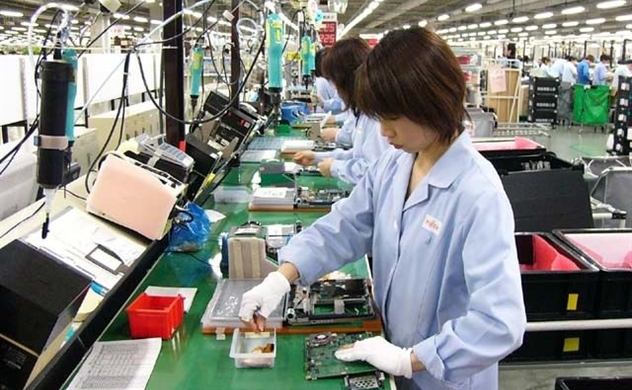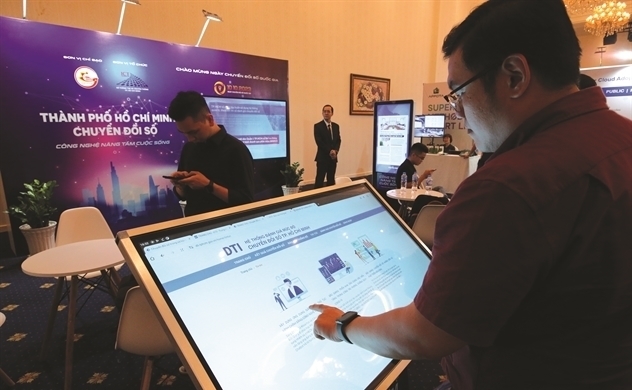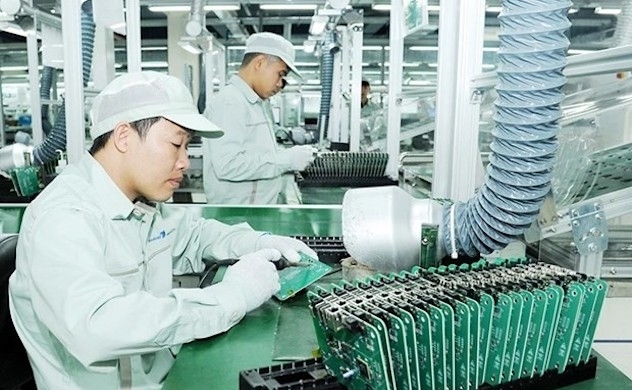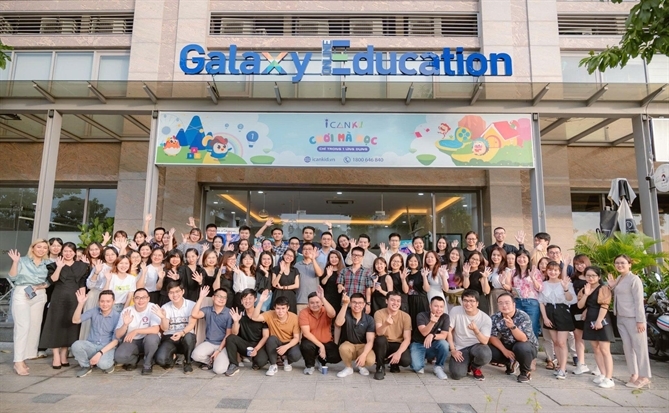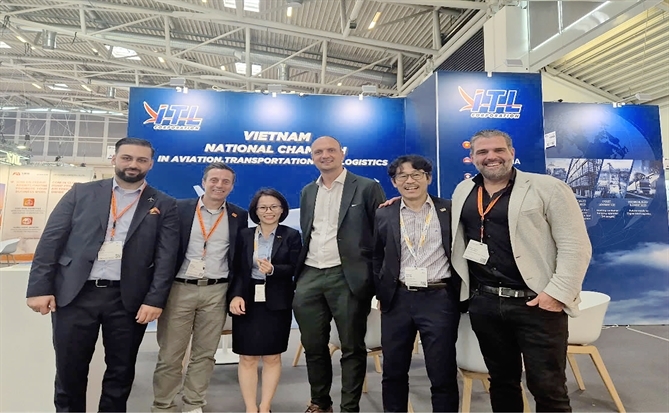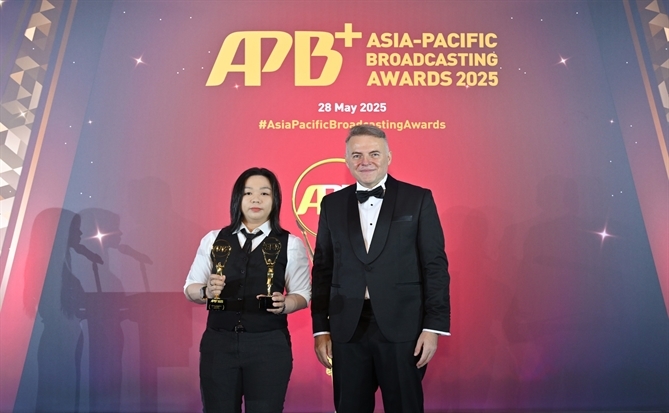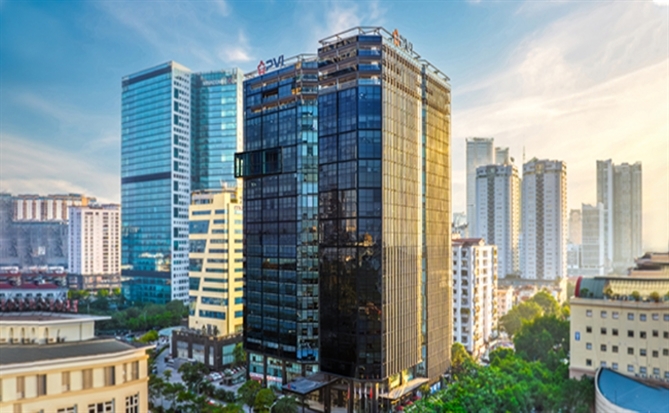Vietnam's digital ambitions spur hopes among U.S. businesses
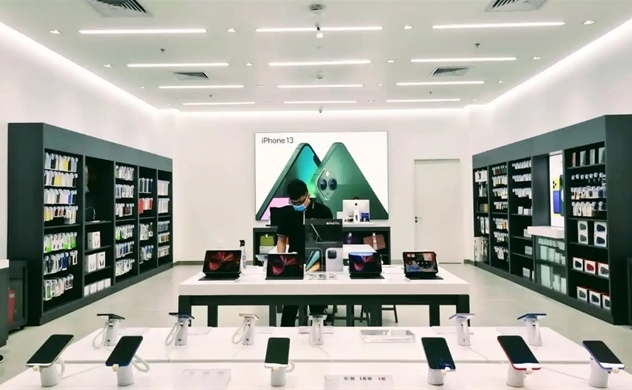
Apple is among U.S. investors in Vietnam, set to be the first country outside China to produce MacBooks, adding to the other Apple devices it already makes there. Photo by Lien Hoang.
That is the message from U.S.-ASEAN Business Council CEO Ted Osius, fresh from a trade mission to Hanoi that included representatives from Netflix, Facebook parent Meta, SpaceX, and Lockheed Martin.
Company and state officials have addressed each other's concerns in "very practical" and "phenomenal" talks, Osius said in a recent interview.
Vietnam wants digital services to comprise 20% of the economy by 2025, but requires companies to store data locally and block content critical of the one-party state. Osius said regulatory tension exists in many places, but suggested there has been compromise in Vietnam, with internet platforms recognizing the government's data security priorities but refraining from handing over user data.
Vietnam knows "these companies could go someplace else," he said. At the same time, "Companies are adjusting to the new reality that countries want a say" in how they operate.
U.S. President Joe Biden and Vietnam Communist Party General-Secretary Nguyen Phu Trong spoke by phone on March 29, exactly 50 years after U.S. troops ended their involvement in the Vietnam War. The two leaders invited each other to visit their countries, according to a summary of the call by Vietnam's government. Osius, a former U.S. ambassador to Hanoi, said he has talked to officials about a potential visit but does not know if it will happen this year. Such a trip likely would be linked to an official upgrade in diplomatic ties, which he thinks would lead to more digital, energy, health and defense trade between Vietnam and the U.S.
Few countries have staged as dramatic a turnaround in relations as the two once-warring nations. Commerce is a key cause of the improved ties, with the U.S. increasingly reliant on Vietnam for semiconductors and garments, and in turn exporting agricultural products, YouTube ads, and other goods and services to the Southeast Asian country. Human rights and geopolitics add complexity to the bilateral trading relationship.
"There are [new sectors] that weren't opportunities in the past, like aerospace, defense, and security," Osius told Nikkei Asia, having returned to Washington after last month's trip to Vietnam, which shares U.S. concerns about China's claims to the South China Sea.
Boeing, Lockheed and Raytheon have clinched sales to Vietnam, he said without elaborating. Boeing told Nikkei it discussed with officials a "growing partnership" that ranges from defense to aviation to manufacturing.
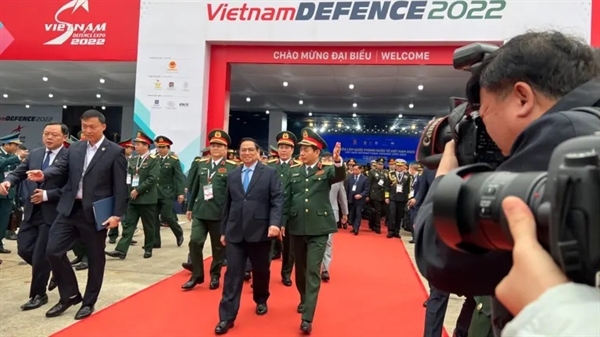 |
| Vietnam held a defense expo in December, with U.S. contractors such as Lockheed Martin taking part, although the U.S. accounts for a tiny share of the market. Photo by Kim Dung Tong. |
Since lifting a postwar arms embargo in 2016, the U.S. has exported some defense equipment to Vietnam, including Boeing ScanEagle drones. Washington also plans to ship a dozen T-6 trainer aircraft to the country, according to data from the Stockholm International Peace Research Institute.
The U.S. soon will deliver a third Coast Guard cutter to Vietnam, adding to the 24 patrol boats and other gear provided to help the country maintain "peace and stability in the South China Sea," U.S. Secretary of State Antony Blinken said April 15 in Hanoi. That weekend he broke ground on a long-delayed U.S. Embassy, took in a jazz concert, and talked to a robot with college students. His trip was part of Washington's push to upgrade ties that has included visits to Vietnam by top U.S. trade and defense officials, legislators, and Vice President Kamala Harris.
"Boeing has been developing its presence in Vietnam by investing in local capability-building and collaborating with Vietnamese organizations across manufacturing, infrastructure, engineering services, aviation safety, sustainability, research and technology, training, and skills development," a spokesperson said.
Raytheon and Lockheed did not respond to requests for comment.
In March, Osius said, his business group got "red-carpet" treatment from Vietnam's powerful Communist Party Politburo members and the prime minister, as well as the security and defense ministries.
"Our two systems aren't completely aligned, so we spent a lot of time better understanding [defense] procurement systems, and I think that was productive," said Osius, a former vice president at Google Asia Pacific.
When asked about SpaceX exploring the Vietnam market, he said, "They launch satellites, so they assist with telecommunications. ... The fact that they're there means that they're interested." The company did not reply to a request for comment.
The 52 businesses on the U.S.-ASEAN council trip also included Pfizer, Pepsi, Visa, Apple and Amazon Web Services (AWS).
Apple CEO Tim Cook, who hosted the Vietnamese premier at his California office in May, said the iPhone maker hit sales records last year in Vietnam, which also is becoming a top manufacturer for the company. It is set to be the first country outside China to produce MacBooks, in addition to the other Apple devices it already makes, Nikkei first reported.
Yet Vietnam also missed out on other U.S. investments. Chipmaker Intel has chosen Malaysia for a $7 billion factory, and cloud provider AWS plans to pour $5 billion into Thailand. Osius said sometimes it's a business decision, depending where customers are, though investors also have complained about red tape during Vietnam's corruption crackdown and curbs to the internet.

"They've got really high aspirations for the digital economy," Osius said of the 20% goal by 2025 laid out in "Prime Minister Decision 749" in 2020. "They know that if they want to meet those targets, they've got to keep the dialogue going, and companies need to see that it's productive." |
Source: Nikkei Asia
Same category news
-
Huyền Hoàng

 TIẾNG VIỆT
TIẾNG VIỆT 
_1120686.png)

